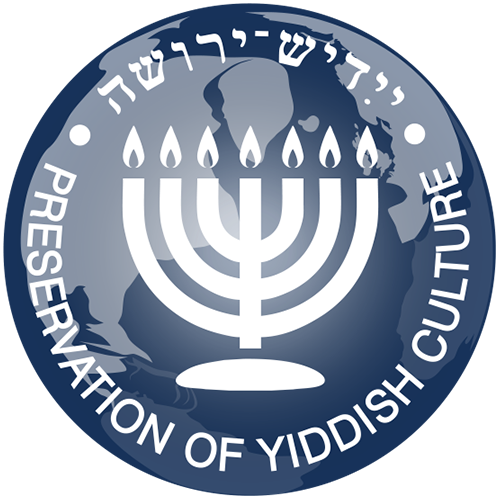About Us
The goal of our project is the preservation of Yiddish culture and ensuring its further flourishing. It has been developing in the recent years in several countries under the umbrella of two foundations: The Heritage Projects Foundation (USA) and The Yiddish Heritage Preservation Foundation (Israel).
The goal of our project is the preservation of Yiddish culture and ensuring its further flourishing. It has been developing in the recent years in several countries under the umbrella of two foundations: The Heritage Projects Foundation (USA) and The Yiddish Heritage Preservation Foundation (Israel).
Yiddish is the traditional language of the Ashkenazi Jews who lived for centuries on a huge territory shared by several European countries. This traditional “country of Yiddish”, destroyed during the Holocaust, is known today as Yiddishland. Among our goals is widening the borders of today’s new, largely virtual emerging Yiddishland – the international network of Yiddish lovers and activists, establishing a new platform for Yiddish studies and creativity.
The author of this project and the creator of both foundations is Dr. Mark Zilberquit: a public figure, the author and publisher of several books dedicated to education and art. According to his vision, there are three aspects of this project: research, education and inspiration.
The first aspect involves search and preservation of archival documents, literary pieces, paintings and music related to Yiddish culture, including works that were until recently deemed lost. As one of its goals, this project aspires to make them accessible for study and to bring a new life to these works.
The second aspect involves organizing educational programs, writing textbooks and manuals, in paper form or involving digital technologies, in order to build an educational basis for studying the history of the Yiddish culture and its most important phenomena. This also includes publishing collected works of Yiddish authors, scientific and literary periodicals, support of creativity in Yiddish, organizing music festivals, art exhibitions and conferences.
The third aspect is inspirational. It is necessary to develop an interest for the Yiddish culture among the younger generation, to arouse their interest in its preservation and further development, which includes studying Yiddish as a language, working with archival documents, organizing musical performances, etc. Perhaps this is our most important goal.
One of the first preliminary results of these foundations’ activities is this web portal, which attempts to aggregate comprehensive information about everything that is happening today around the world regarding Yiddish culture and Yiddish education. This website is not an end in itself, but a tool for implementing certain projects that take place within the activity framework of the two aforementioned charity foundations. Our goal is the preservation and study of Yiddish culture both online and in physical spaces.
Our current plans include the following:
• Education: encouraging the study of Yiddish language and its culture. That includes organizing and creating educational resources geared towards various age groups and academic levels.
• Organizing and conducting academic conferences and festivals.
• Cooperation with the Tel Aviv University, based on the already signed agreement with this institution on a wide range of issues, most importantly on providing scholarships for the students who are ready to study various aspects of Yiddish culture and on establishing new interdisciplinary links in the university’s educational process.
• Archival and research work. Working in private and public archives in order to locate and study documents related to the musical and artistic aspects of Yiddish culture. In many cases, that would save them from oblivion.
• Perpetuation of lives and activities of prominent artists from the past. We have chosen the figure of Sholem Aleichem as a pilot project. Our plan is the following:
• Erecting a monument to this great writer on the territory of the Tel Aviv University. The work on the monument itself has been completed;
• Establishing the world’s first literary prize named after Sholem Aleichem for young Yiddish-language writers and an incentive prize for students who study his work;
• Beginning the full digitization of Sholem Aleichem’s archives located in different countries, including the largest collection in Israel;
• Opening a new Yiddish cultural center in Jerusalem. Such a center would become a place for regular cultural events. It would also function as an educational and lecture center and would include a library and – perhaps – a small Yiddish museum dedicated to the history of the language and its culture from the Middle Ages to the present day.
Our work on this website is just beginning. We hope to provide valuable information and resources for everyone interested in Jewish history and culture. We strive to provide this information in four languages: English, Yiddish, Hebrew and Russian.
